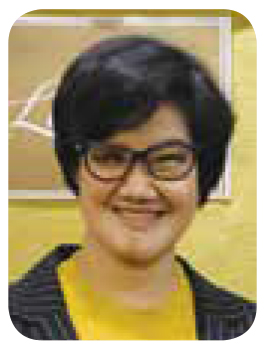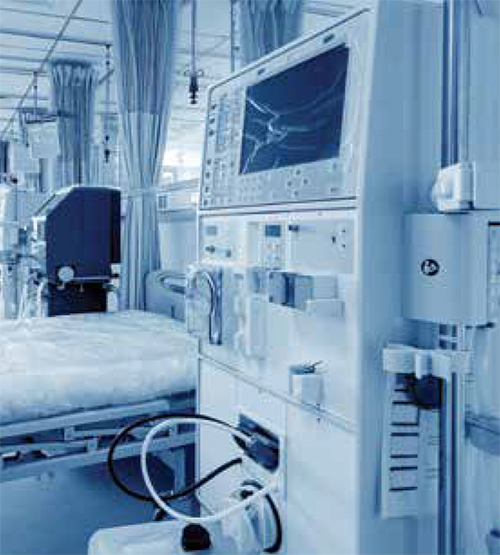The medical device market in ASEAN is predicted to be worth US$8.5 billion by 2021 according to Forbes magazine. Forbes also calculates the start-up ecosystem in Southeast Asia will be worth more than US$13 billion by 2020. But is Thailand doing enough to support healthcare industry start-ups and secure a leading position in those markets?
Thailand is well poised for building and sustaining a start-up culture, encouraged by the government’s Thailand 4.0 vision, which has seen entire sectors of the economy being rebuilt with new technology and overseas investment. A dedicated programme called ‘Startup Thailand’, set up by the National Innovation Agency (NIA), hopes to accomplish this by reforming government procurement, building innovation districts, and increasing international cooperation.
As well as building the infrastructure of railways, airports and smart cities to support the new industries, the government is also investing heavily in its university system to boost research activity and train the thousands of engineers and scientists that will be needed for the planned expansions in targeted industries such as the biotech, biochemical, medtech and robotics
The Thai government has progressive policies in place to help the country attain the position of “Thailand, a Hub of Wellness and Medical Services” within a ten-year timeframe (2016-2025). The plan focuses on four major areas: wellness, medical services, academic and medical centres, and health products. The government also provides additional technology-based incentives for investment in the development of core technologies — biotechnology, nanotechnology, advanced material technology, and digital technology — and enabling services that support targeted technology development.
But will all this be enough?

To find out, we spoke with Dr. Kakanand Srungboonmee, from the Centre of Data Mining and Biomedical Informatics, Faculty of Medical Technology, Mahidol University, in Bangkok Thailand.
As well as being an academic, innovator and start-up founder herself, Dr. Srungboonmee is also key in curating the speakers and topics for the Start-up Podium which will take place at MEDICAL FAIR THAILAND 2019 from 11 to 13 September in Bangkok.
The life sciences and medical/health start-up ecosystem in Thailand is in an early stage. We are comparatively new to the idea of innovating our own solutions to our own problems. We have been good customers for a long time, using products invented and manufactured elsewhere in the world. Thailand’s medical device market is the eighth largest in the Asia-Pacific region. Estimated in 2015 to be worth more than US$1.2 billion, it is expected to grow at a high single-digit rate (CAGR of 8.1 per cent during 2015 to 2020) to reach US$1.7 billion by 2020. Consumable devices and diagnostic imaging are among the products with large market share, followed by orthopaedics and prosthetics, dental products and patient aids. Local production is limited to consumables and basic medical devices.
There are around 320 local manufacturers, mostly Small and Medium Enterprises (SMEs) producing products such as diagnostic kits, syringes, surgical gloves and catheters. Over 80 per cent of domestic production is for export. Thailand continues to rely on import to supply most of the market, particularly highgrade and sophisticated medical devices. When those foreign products have not really met our needs, we have used our natural patient and adaptive tendencies to make them work for us or we have worked around their shortfalls. Now that is beginning to change and we are seeing more Thai start-ups innovating solutions for the local market.
As Thailand’s medical device market continues to grow there will be great potential for local companies and innovators to develop products to meet demand in many areas including those related to surgical procedure equipment, implanted medical devices, respiratory devices and oxygen therapy, orthopaedic implant devices, heart valves, neurosurgical devices, rehabilitation equipment and accessories, and dermatological devices.
One of the challenges we face at this stage is that the innovators/developers are often working at a distance from the healthcare environment without direct input from healthcare professionals. That can lead to the true needs of patients or healthcare professionals not really being met. We need more collaboration between healthcare professionals and the innovators, and the IT and engineering professionals trying to develop solutions. At the beginning of the process we need the healthcare professionals to identify an unmet need and then we need them to be giving feedback to the development team throughout the process.
Another challenge is that coaches and mentors for medical industry startups are difficult to find as the industry is still young in Thailand. Again, collaboration could be the answer. If entrepreneurs with start-up experience in other tech sectors, healthcare professionals, young MedTech innovators, established industry players, and the government sector can work together, we can build the necessary ecosystem to support MedTech startups.
Innovation is important for the life sciences and medical/health industry because the current healthcare model is unsustainable. The traditional healthcare system has focused on treating people in hospital and then sending them home and the innovation has focused on looking for new treatments. But waiting for people to become acutely ill and then treating them is very expensive, and as our population grows older, that approach will become more and more unsustainable. Thailand is currently moving from an ageing society towards an aged society. By 2032, the proportion of ageing population is expected to reach 32.2 per cent of the population (from 16.5 per cent in 2016). Along with the reduced fertility rate, this will not only impact the country’s healthcare system but also its economic productivity. To cope with the impact of our ageing society, innovation in the life sciences and medical/health needs to focus more on promoting wellness and a healthier lifestyle. It needs to be looking for preventative treatments, earlier detection of disease and earlier interventions to treat or manage the disease before it becomes serious and requires hospitalisation.

We do not really have a co-working space specifically designed for life sciences and medical/health innovation. Developers and clinicians are not just figuratively working in their own silos and not talking and sharing ideas, they are actually physically separated from the clinicians and healthcare professionals. The innovators are working in offices over here, the engineers are in an industrial park over there and the clinicians and healthcare professionals are in a hospital somewhere else; they are not all part of the same ecosystem. So their true requirements are not really being met because they are not talking to, and working with, the innovators and developers.
We need to have co-working spaces that are especially designed for healthcare innovation. The co-working space should facilitate the development of the sort of ecosystem needed for medical industry innovation, with good coaching and mentoring systems from the clinical and industry sides. There should be start-up incubation spaces and engineering facilities on the campuses of the big research hospitals and collaboration and communication should be encouraged and facilitated.
We do not have good coaches and mentors with experience in the medical business. Most of the start-up incubators do not really work with or have experience in medical industry. Start-ups have to find their own ways or share resources, including investor resources, with start-ups in other industries. We also need investors who understand the challenges faced by life sciences and medical/ health startups. General investors are interested in the healthcare industry but they are used to faster development times and seeing quicker returns on their investments in other industry sectors. So when they see the challenges faced by the life sciences and medical/health sectors such as the longer time needed for development and clinical trials, stricter standards and more restrictive marketing regulations, they usually give up.
We need incubators who are experienced in life sciences and medical/health industry. Longer term support is also needed in the life sciences and medical/health industry; accelerators should work not just at the level of incubating the business but also in the various stages of development.
Additionally, because investing in the healthcare industry costs more and takes longer to see returns compared to other industries, healthcare startups need opportunities to meet with investors who are familiar with the life sciences and medical/health industry and understand the challenges and time frames involved.
The government, industry players, innovators all need to realise that life sciences and medical/ health innovation promotes sustainable wellness and wellbeing. It is this technology that directly helps us live healthier and better lives. An ecosystem suitable for life sciences and medical/health innovation should be created to help accelerate the innovations that will keep Thais living longer, healthier, happier, and economically more sustainable lives.